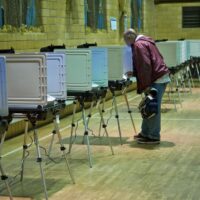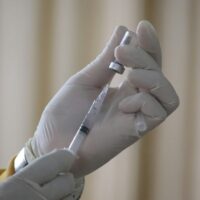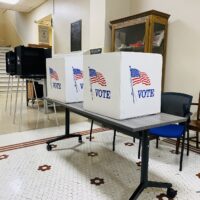FRANKFORT, Ky. — Despite believing there is “very little appetite” in the Republican-controlled Kentucky legislature to roll back abortion bans, a Lexington Democrat hopes her own story of becoming a mother appeals to “friendly faces across the aisle.”
Rep. Lindsey Burke, D-Lexington, is filing three bills that roll back all abortion bans in Kentucky, protect medical records of Kentuckians who travel out of state to receive abortions where it’s legal and expand the Health Access Nurturing Development Services (HANDS) program to make sure new parents in the state can learn about mental health following birth.
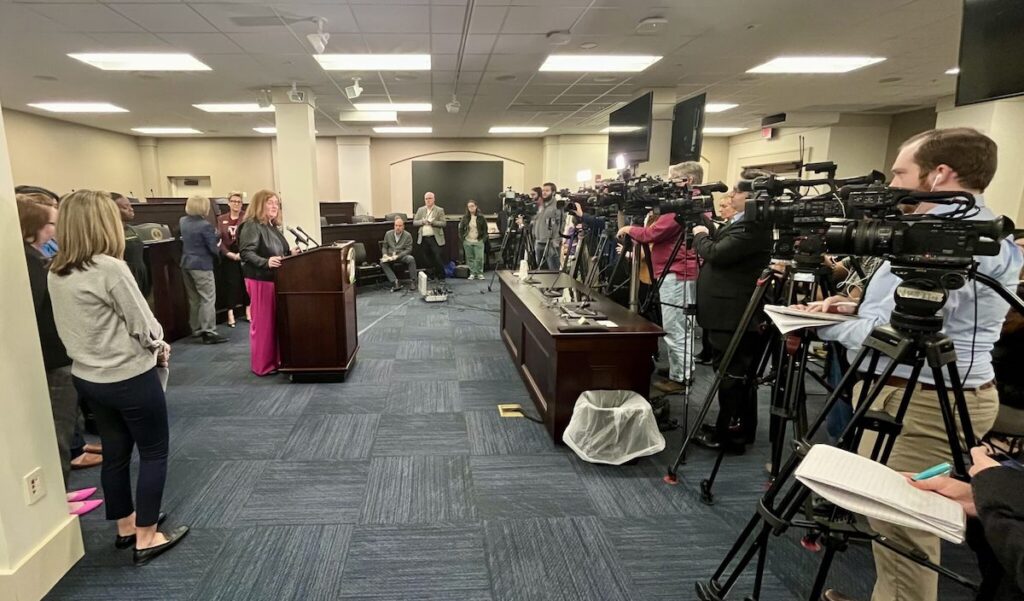
Meanwhile, Senate Democratic Whip David Yates, of Louisville, filed Senate Bill 99 in early January that would add exceptions for rape and incest to the state’s abortion bans. It has not been assigned a committee.
Burke filed similar legislation in 2023, which did not move. This time, she hopes being transparent about her rape at 17 and experiencing a missed miscarriage later in life and then a complicated twin pregnancy appeal to lawmakers who “really do believe, sincerely, in the right to life.”
Burke’s three bills would:
- Undo all anti-abortion laws enacted since 2015
- Ensure anyone who travels out of state for abortion cannot have medical records subpoenaed in Kentucky.
- Ensure recipients of the HANDS program have access to information about postpartum depression and other mental health issues related to pregnancy.
For Burke, the bottom line motivating her is that pregnancy is “very complicated.”
“It’s not always a straightforward, ‘Yay, we have a happy, positive pregnancy test. Nine months (later) — oh, I got a little sick to my tummy. But everything’s okay. And now we have a baby.’ That’s not reality.”
Her reality, she told reporters, followed a winding road that began as a teenager.
“I lost my virginity at age 17 through rape,” Burke said. “Fortunately, I was infertile. And that rape did not lead to a child.”
“I was so ashamed of what happened that I didn’t tell anyone for years,” she added. “It impacted my mental health. It impacted my education. It impacted my sense of self.”
A decade later, she got married and, while in law school, saw a specialist about her polycystic ovary syndrome, or PCOS, a hormone problem which can cause infertility. The Centers for Disease Control and Prevention estimates 5 million Americans could live with PCOS.
A few years later, Burke said, she and her husband borrowed more than $50,000 to “pursue the dream and the joy of parenthood,” first through intrauterine insemination (IUI) then through in vitro fertilization (IVF).

In 2020, she suffered a “missed miscarriage” with her first successful embryo transfer through IVF.
At her first appointment for that pregnancy, “instead of hearing the sound of electrical impulses or heartbeat, we heard silence,” Burke said. A missed miscarriage happens when an embryo dies in utero, but the pregnant body does not pass it.
“You don’t have the dramatic bleeding episode,” Burke said. “In fact, your body still believes that you’re pregnant.”
She got a dilation and curettage (D&C) in Cincinnati, which is a procedure to remove tissue from the uterus.
“Having the ability to know the day and time that that horrible nightmare was going to come to an end was a gift to me. And I’m incredibly grateful that I was able to access that care.”
A few months later, Burke and her husband decided to transfer two embryos, she said. After a promising start to that pregnancy, Baby A showed signs of struggle.
“He had a very large cystic hygroma, which is a mass, a bubble, behind his neck and it ran the entire length of his body,” Burke recalled. He developed three rare fatal fetal anomalies. His organs, Burke said, were developing outside his body: heart, bladder, lungs. His spine did not develop below the lungs.
“There are in utero surgeries that can be done to save a baby who has that abnormality,” she said. “But in a twin pregnancy, they can’t do surgeries in utero.”
Her doctor gave her difficult news.
“She said, ‘You have two options. You can wait until Baby A passes on his own, which I believe he will before he’s born,’” Burke recalled. “‘The positive of that is that you give him a chance. The negative of that is that you will probably have an active miscarriage when he dies, and that could compromise Baby B.’”
The doctor continued, Burke said: “‘Best case scenario, you would have a permanently disabled child and maybe another one. But chances are, you will lose Baby A and you might lose baby B also.’”
After “anger” and “grief,” Burke underwent a selective reduction, which is an operation to abort one fetus in a pregnancy involving more than one.
After the procedure, which happened out of state, “Baby A was gone,” Burke said. “But we managed to save Baby B.”
“As I speak, very transparently, I loved all three of those children,” Burke said, her voice breaking. “I still do.”
This article is republished under a Creative Commons license from Kentucky Lantern, which is part of States Newsroom, a network of news bureaus supported by grants and a coalition of donors as a 501c(3) public charity. Kentucky Lantern maintains editorial independence. Contact Editor Jamie Lucke for questions: info@kentuckylantern.com. Follow Kentucky Lantern on Facebook and Twitter.
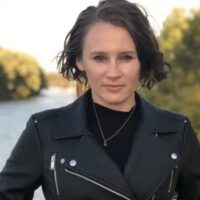
Sarah Ladd
Sarah Ladd is a Louisville-based journalist and Kentuckian. She has covered everything from crime to higher education. In 2020, she started reporting on the COVID-19 pandemic and has covered health ever since.
